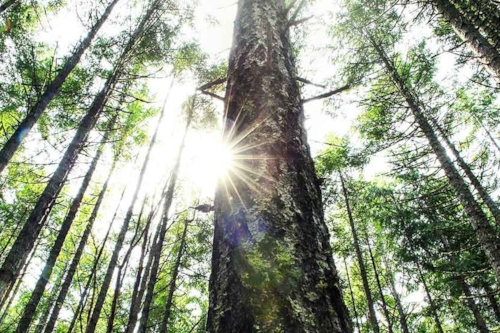
Products for primary assets of energy installations – Validation of circularity data from Raw Material Passport (RMP)
Receive a quote tailored to your needs
The Raw Material Passport: From self-declaration to certified document
The Raw Materials Passport (RMP) was introduced in 2014 in the pursuit of the use of sustainable and circular products that are used by the energy network operators in the Netherlands. The RMP is a means of increasing transparency with regard to products and components used in the energy networks. The raw material composition of a product is recorded in the Raw Material Passport in order to facilitate discussions about sustainability and to make the product more sustainable in concrete terms.
The raw material composition of a product included in the Raw Material Passport also includes so-called 'circularity data' of the product, such as the 'content of circular material' of the product in question. The next step (which is currently being taken) is to ensure that the information included in the Raw Material Passport with regard to the mentioned circularity data is actually correct. To this end, a certification scheme has been introduced by means of the Kiwa Covenant.
Certification of circularity data in raw material passport
Manufacturers who supply products to the network operators are themselves responsible for supplying information about raw material composition and circularity data in the Raw Material Passport. Certification by Kiwa means that the specified circularity data with regard to ‘circular content’ aspects are independently assessed and validated and confirmed by issuing a Kiwa certificate.
The requirements for the certification, including the assessment system, are laid down in the Kiwa Covenant for the Raw Material Passport. Based on this Covenant, product suppliers are certified and receive the Kiwa Covenant certificate for the Raw Material Passport in the event of a positive assessment. In this way, the Kiwa Covenant offers an independent, transparent and impartial assessment to validate the circularity data specified in the Raw Material Passport.
Advantages of a Kiwa Covenant
The Kiwa Covenant is mainly intended for innovative products and processes for which the usual certification via an evaluation guideline would take too long. With certification based on a Kiwa Covenant, requirements are drawn up bilaterally, and therefore potentially quickly, between a limited number of parties. The development of an assessment guideline takes about one to two years and a European standard even five to seven years. A Kiwa Covenant can be finished within half a year, depending on the duration of any investigations and/or tests.
Certification procedure
Manufacturers who supply energy network operators with products that are provided with a Raw Material Passport can be certified by Kiwa. The certification process is as follows:
Quotation phase
Approval and initial assessment
Issuance of the certificate
Annual inspection
Assessment methodology
The Kiwa Covenant for the Raw Material Passport includes the assessment methods for testing the correctness of the percentages of ’circular content’ included in the Raw Material Passport. These assessment methods are based on international standards such as ISO 22095 ’Chain of custody — General terminology and models; where separated storage/transportation of recycled material from virgin material is required for clear identification of circular content’ and IEC 62542 ’Environmental standardization for electrical and electronic products and systems’. In the Kiwa Covenant, these assessment methods are elaborated in chapter 2 for the circular content.
The Covenant only makes a statement about the correctness of the percentages of ’circular content of material’ included in the Raw Material Passport. Other data in the Raw Material Passport or other quality aspects of the products and components in question have not been taken into account.
Recycled content
For the validation of the percentages of recyclate in a product or part of a product specified in the Raw Material Passport, the specified percentages must be substantiated and demonstrated from the supplier's business processes. This concerns business processes from registering and checking the incoming raw materials and semi-finished products, the production of the components or products and the internal controls thereof, including storage and transport to the customers.
It must be clear and verified that the incoming raw materials or semi-finished products contain the percentages of recyclate as agreed with the supplier(s). This means that these supplied raw materials or semi-finished products must be supplied with an independent third party certificate. Annex IV of the Covenant indicates which type of third party certificates and declarations are accepted. An exception to this is the recyclate content for copper. Up to a percentage of 50% recyclate, a ’Certificate of Honour’ will suffice, which is a self-declaration by the buyer's supplier.
It is important that the following aspects can be demonstrated through process records and calculations within the business operations:
- The exact composition of the produced components or products
- That records are available for all raw materials received and processed
- That the recycled origin of raw materials or semi-finished products is supported by certificates issued by an independent party.
- That records of finished and sold products are maintained.
- That, based on these records, the recycled content of the products can be determined.
In the assessment by Kiwa, a sample of the recycled material will be followed from sale to purchase (batch to batch). A questionnaire has been included in the Covenant (Annex I) to substantiate the recyclate levels. If the questions can be answered positively, it can be expected that the stated recyclate contents will be assessed by Kiwa and subsequently validated after a positive assessment. An example of a calculation model for the content of recyclate is included in Annex II of the Covenant. The supplier can use this to substantiate the percentage(s) of recyclate specified in the Raw Material Passport.
The assessment by Kiwa takes place directly on the basis of the specifications as included in the Raw Material Passport and as provided by the supplier. Although the Covenant certificates are so-called ’product certificates’ (after all, they concern products supplied to network operators), the validation takes place on the basis of assessment of the business processes that must be able to adequately substantiate the stated percentages of recyclate.
Kiwa Covenant Raw Material Passport logo
The Kiwa Covenant logo may be used in connection with the Raw Materials Passport in documentation, websites, leaflets, etc.
KIWAGREEN for products improving the health of people and planet - K15014
The KIWAGREEN certificate supports the demand and the supply of products and services which cause less stress on the environment.

RecyClass Certification for Plastics Recyclers
The RecyClass (former EuCertPlast) Certification is an International certification program for companies that recycle or make use post-consumer plastic waste / recycled materials. As an accredited RecyClass auditor, Kiwa can carry out the certification of your recycling and / or manufacturing plant.
